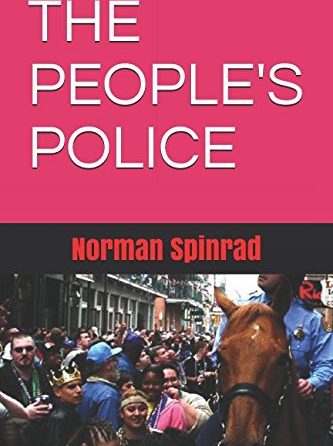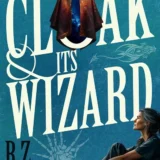The Endless Machine, by Max Ingram
Available in Paperback March 1, 2015
The Endless Machine is a brief chapbook of 21 poems on mostly speculative themes ranging from SF to horror. There are several, which don’t seem at all speculative, but rather autobiographical or even confessional (à la Sexton or Plath). The poems are divided into to chapters: “The Voyage” and “Man of Excess”. The first chapter contains the more “traditional” SF poetry.
Max Ingram is an author and poet from the arid climes of Arizona. He has always loved the bizarre, strange and fantastic, immersing himself in comic books, video games and Sci-Fi / Horror films from a young age. The Endless Machine is his second collection of poetry. The first is called Bone Forge. (The Endless Machine, 2015)
 Many of the poems in “The Voyage” focus on starships or space conveyance or anomaly of some sort (one seems exceedingly small, or maybe the being that found it is huge?), or first/alien contact of a kind. It took me a long time to figure these poems out though. And that is perhaps my biggest problem with this collection. While the language is beautiful and full of sometimes brilliantly evoked images, it is often overly vague (which is perhaps affected). That said, I did eventually figure it out, but it took a couple of readings. I kept at it with this collection, because I felt there was something I was missing. But once I realized what was being alluded to, it was like a veil falling away and suddenly what had made me say, “huh?” now made sense. I wish I hadn’t had to work so hard at it and I’m afraid many readers won’t! There is huge potential in many of these poems, but they are often marred by the purplish use of adjectives.
Many of the poems in “The Voyage” focus on starships or space conveyance or anomaly of some sort (one seems exceedingly small, or maybe the being that found it is huge?), or first/alien contact of a kind. It took me a long time to figure these poems out though. And that is perhaps my biggest problem with this collection. While the language is beautiful and full of sometimes brilliantly evoked images, it is often overly vague (which is perhaps affected). That said, I did eventually figure it out, but it took a couple of readings. I kept at it with this collection, because I felt there was something I was missing. But once I realized what was being alluded to, it was like a veil falling away and suddenly what had made me say, “huh?” now made sense. I wish I hadn’t had to work so hard at it and I’m afraid many readers won’t! There is huge potential in many of these poems, but they are often marred by the purplish use of adjectives.
Weak line breaks also abound. Ending a line with “the”, “that”, “of” or “for” serves no purpose. It’s a pity, because I’m sure Ingram has it in him to make use of line breaks in these free verse poems to highlight a word or a phrase. I almost wish I could tell him to quick, before the book is actually published, go through and rethink the line breaks. Reading poems like these aloud makes it clear that you can’t make line breaks like these significant in any way. Either you pause awkwardly, only to have the first word of the next line not be anything special, or you ignore them altogether. I chose the latter.
After the second read-through, I really started to enjoy many of these poems. “Diaspora” is one of my favorites:
“Wormholes” is a little gruesome but an aspect of the appearance of a wormhole that I hadn’t considered previously, and a moment that makes your ears wiggle. In a good way.
Then in “The Endless Machine III: In Time”, a beautifully eloquent expression of a solitary wakeful voyager’s love for his generation ship is ruined in the final stanzas by statements (and an accompanying change in tone) which are pretty cheesy.
In time we came to speak, to
listen to one another. She murmured
beneath floorboards, gentle sighs
accompanied each course change,
with my hands upon her consoles.
…
We are to be married, she and I, made
union most holy and perfect…
…
The sun will be our pastor. He will
join us and we shall exult in his light,
as one, and then, blessedly, no more.
I wish Ingram had been more vague here!
As said, the poems in the second section “Man of Excess” are much more personal in nature. But still “speculative” in the sense that they ask more questions than answer. The author seems to be trying to work something out for himself in most of them.
Had to make a choice between
‘Crazy Max’ and ‘Fun Max’
never knowing
which was truly which,
never sure if
anything mattered beyond just
betting on percentages of sanity.
– from “Merry Christmas”
This is a collection I feel quite conflicted about. There are moments of brilliance, and vivid imagery, which lift it above more mundane poetry. But on the other hand there are some serious issues in execution, which if the poet pays attention to them, will hopefully disappear in future efforts. I look forward to reading this poet’s next offering, expecting his craft to improve to the point where all I have left is the admiration that was too fleeting here.
I’m going to attempt to do a review a week. We’ll see how well I manage! I have so many collections I want to review, that if I only post on a bi-weekly basis I already have enough on my plate to keep me busy well into 2016! I have some really great stuff for you, though, so I hope you stay tuned, whether the posts come fast and furious or not.









